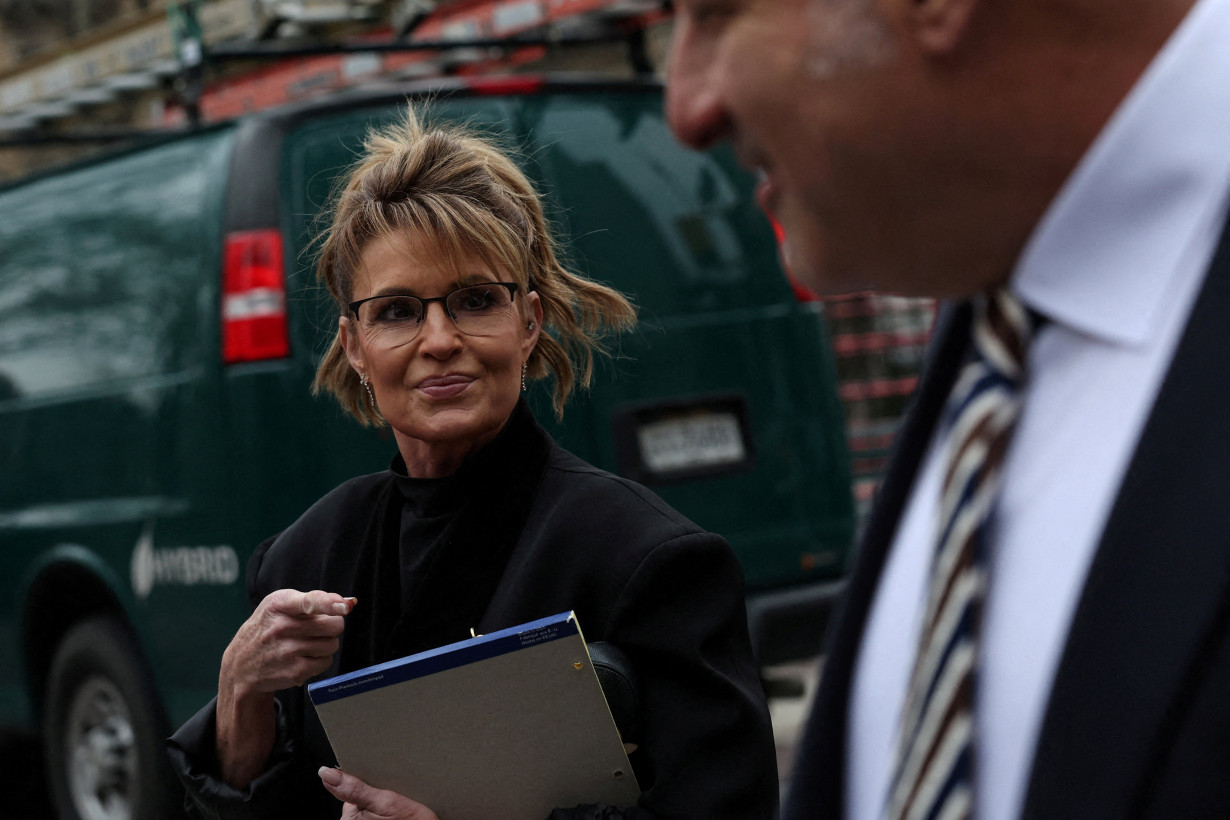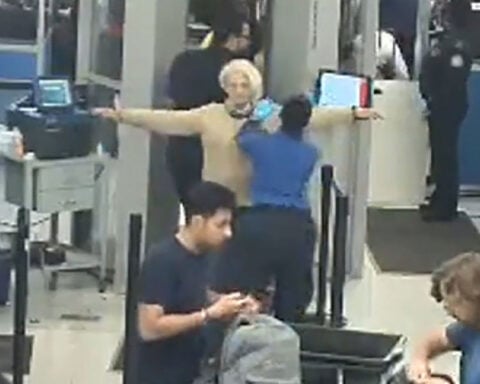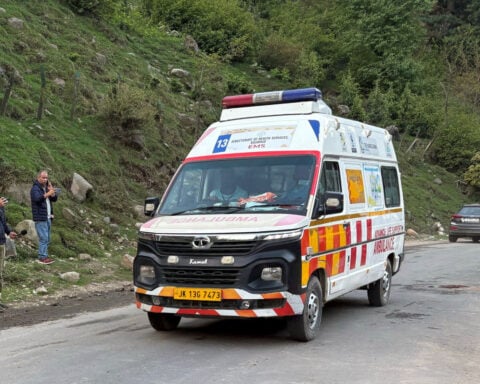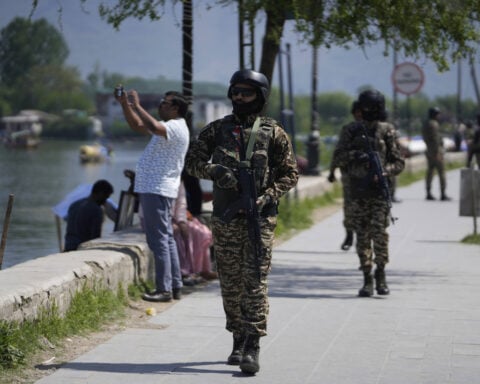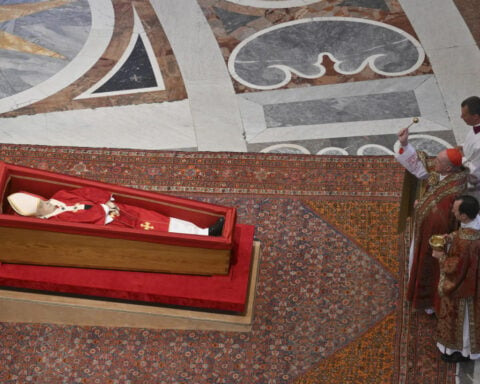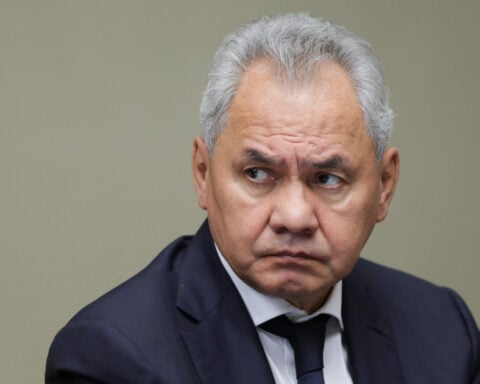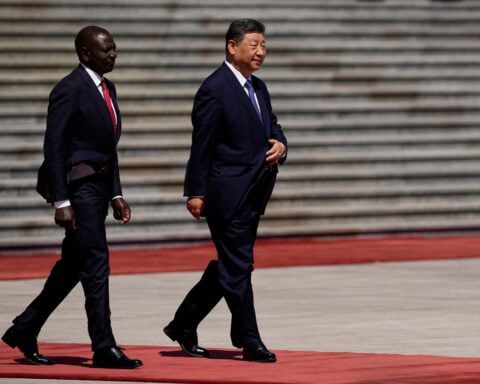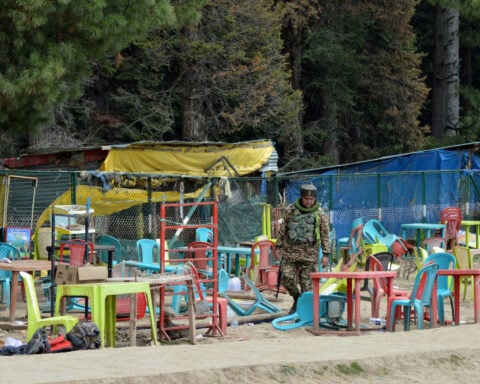By Luc Cohen
NEW YORK (Reuters) -Sarah Palin's lawyer faulted the New York Times on Tuesday for failing to apologize to the former Republican U.S. vice presidential candidate for false statements in a 2017 editorial about gun control as jurors heard opening statements in the retrial of her defamation case against the newspaper.
A lawyer for the New York Times told the jury of five women and four men in Manhattan federal court that the newspaper acknowledged it made a mistake, apologized in writing for making an error and quickly published a correction 14 hours after the editorial appeared online.
Palin, 61, lost her first trial against the Times and former editorial page editor James Bennet in 2022. But the 2nd U.S. Circuit Court of Appeals in Manhattan last August decided that the verdict was tainted by several rulings by the presiding judge, and ordered a retrial. Palin, who served as Alaska governor from 2006 to 2009, was unsuccessful in her 2008 bid for the second-highest U.S. office, with running mate John McCain.
Palin sued the newspaper after it published an editorial on June 14, 2017, bearing the headline "America's Lethal Politics" that wrongly suggested she may have incited a January 2011 mass shooting in an Arizona parking lot. Six people were killed and Democratic U.S. Representative Gabby Giffords was seriously wounded.
Bennet had added language - he said under deadline pressure - identifying a "clear" link between the shooting and a map from Palin's political action committee that put Giffords and other Democrats under crosshairs.
Felicia Ellsworth, a lawyer for the newspaper, described for the jury the corrective steps it look after the editorial was published.
"James and the New York Times did the exact opposite of what you would expect someone who actually wanted to harm Governor Palin to do," Ellsworth said during her opening statement.
Shane Vogt, a lawyer for Palin, said the corrections were not sufficient because they did not reference Palin by name.
"They just couldn't bring themselves to say, 'Governor Palin, we're sorry, we made this mistake about you,'" said Vogt, who represented professional wrestler Hulk Hogan in a 2016 defamation trial that led to the bankruptcy of online news outlet Gawker.
In reviving Palin's case, the 2nd Circuit said U.S. District Judge Jed Rakoff wrongly excluded evidence that she offered to show Bennet knew she did not incite the shooting. It also faulted Rakoff's excluding evidence about Bennet's relationship with his brother Michael Bennet, the Democratic senator from Colorado, that Palin said could establish bias.
Palin has viewed her case as a vehicle to overturn New York Times v. Sullivan, a landmark 1964 U.S. Supreme Court ruling. The Supreme Court in that case set a standard that in order to win a defamation suit, a public figure must demonstrate that the offending statement was made with "actual malice," meaning with knowledge it was false or with reckless disregard as to whether it was false.
The 2nd Circuit, however, said Palin waived the argument by waiting too long to challenge Sullivan's "actual malice" standard.
The U.S. Supreme Court on March 24 turned away a bid by casino mogul Steve Wynn to roll back defamation protections established under New York Times v. Sullivan, a standard also questioned by President Donald Trump.
McCain, who served as a Republican U.S. senator from Arizona, chose Palin as his vice presidential running mate in the 2008 election that they lost to Democrats Barack Obama and Joe Biden.
(Reporting by Luc Cohen in New York; Editing by Will Dunham)

 Trump has begun another trade war. Here's a timeline of how we got here
Trump has begun another trade war. Here's a timeline of how we got here
 Canada's leader laments lost friendship with US in town that sheltered stranded Americans after 9/11
Canada's leader laments lost friendship with US in town that sheltered stranded Americans after 9/11
 Chinese EV giant BYD's fourth-quarter profit leaps 73%
Chinese EV giant BYD's fourth-quarter profit leaps 73%
 You're an American in another land? Prepare to talk about the why and how of Trump 2.0
You're an American in another land? Prepare to talk about the why and how of Trump 2.0
 Chalk talk: Star power, top teams and No. 5 seeds headline the women's March Madness Sweet 16
Chalk talk: Star power, top teams and No. 5 seeds headline the women's March Madness Sweet 16
 Purdue returns to Sweet 16 with 76-62 win over McNeese in March Madness
Purdue returns to Sweet 16 with 76-62 win over McNeese in March Madness
